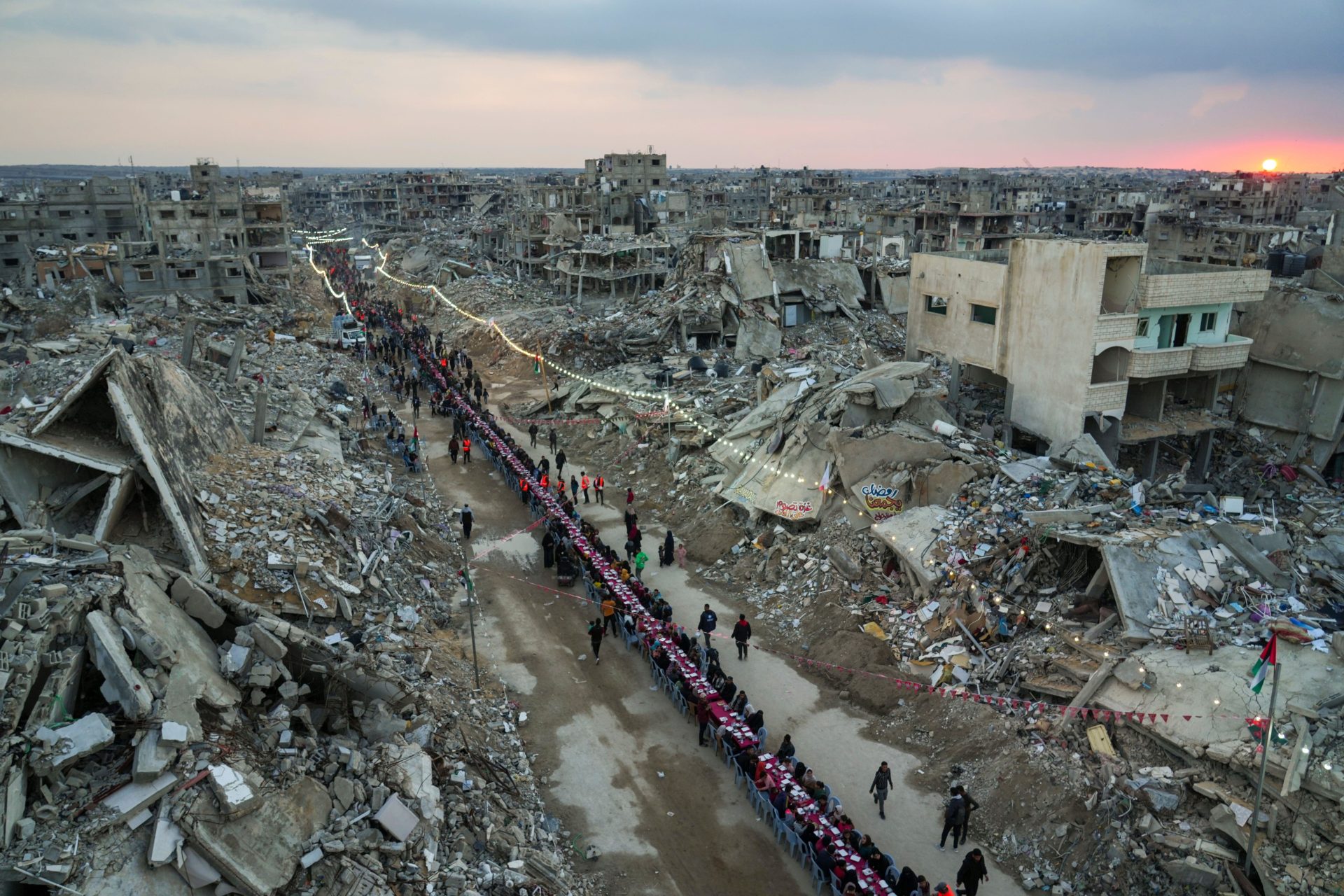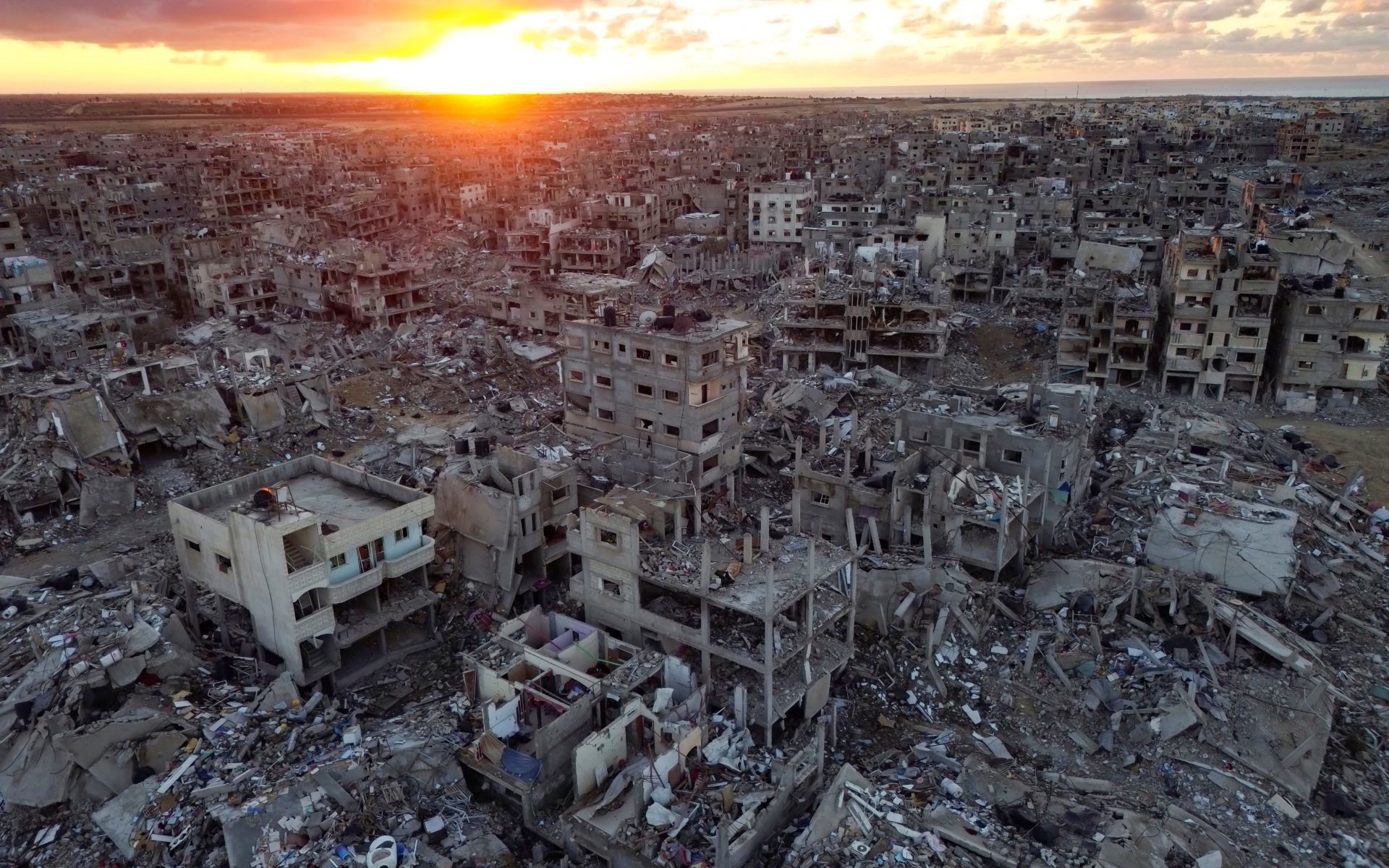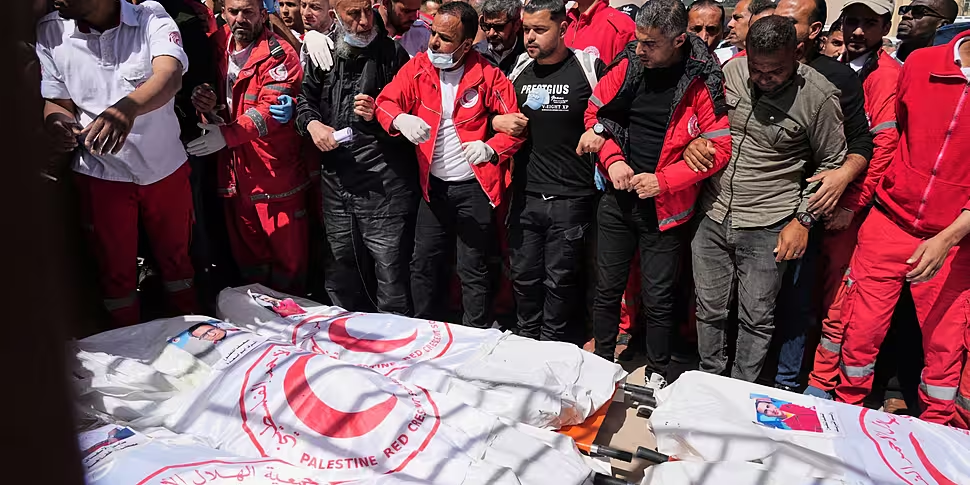An Irish surgeon recently returned from Gaza has said he saw “quite a lot of dead children” and questioned how the world can allow the conflict to continue.
Vascular trauma surgeon Morgan McMonagle spent six weeks in the territory, arriving while the ceasefire was still in operation.
On The Hard Shoulder, he recalled how difficult life was for Gazans even before the ceasefire was broken.
“The forces that control what gets in and what gets out, stopped aid getting in,” he said.
“So, food and medicine started to drop off and then electricity was cut to the main water desalination plant.
“While it wasn’t anything like it was a year ago… things were starting to get tough again while people were trying to rebuild their lives.”
 As the sun sets, Palestinians sit at a large table surrounded by the rubble of destroyed homes and buildings as they gather for iftar in March. Picture by: AP Photo/Abdel Kareem Hana.
As the sun sets, Palestinians sit at a large table surrounded by the rubble of destroyed homes and buildings as they gather for iftar in March. Picture by: AP Photo/Abdel Kareem Hana.Dr McMonagle added that despite the hopes of many that the ceasefire meant the end of the conflict, few Gazans expected it to last.
“Speaking with the locals, they felt it was a case of ‘when’ rather than ‘if’,” he said.
“Obviously, they were hopeful but the reduction in aid coming in and the fact that people were not allowed to get material to fix things… There was a feeling on the ground that the structural damage, it was going to remain for a reason.”
On March 18th, the ceasefire was breached by Israel and Dr McMonagle said the impact was obvious “immediately”.
“I think it was the single worst night since the conflict started in October 2023,” he said.
“It started just shortly after 2am; within about 30, 40 minutes, we had a mass casualty event.
“People arriving by ambulance, cars, donkey and cart, carried in by hand.”
 An aerial photograph taken by a drone shows the destruction caused by the Israeli air and ground offensive, in Rafah, Gaza Strip. Picture by: AP Photo/Jehad Alshrafi. 24 January 2025
An aerial photograph taken by a drone shows the destruction caused by the Israeli air and ground offensive, in Rafah, Gaza Strip. Picture by: AP Photo/Jehad Alshrafi. 24 January 2025Dr McMonagle said a significant number of the patients he treated were children.
“A lot of dead people or dead children; we spent the first 20 minutes pronouncing people dead - mostly kids and women.
“Roughly 50% of the Gazan population is under 14, so when you see that number of children being brought in at once dead or severely injured, it’s quite shocking to see [how] any conflict would allow that to happen.
“And [how] any modern world would allow that to happen.”
Since the war began in 2023, Gazan officials estimate that 50,000 people in the territory have died.
Israel has said responsibility for the conflict lies with Hamas and that the organisation broke the ceasefire agreement before March 18th.









